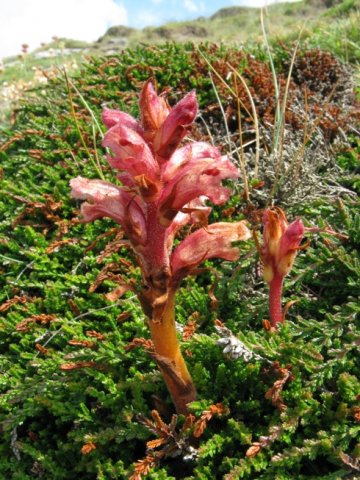Between us – the Linking the Lizard partner organisations – we own and manage a considerable area of land on the Lizard. Unfortunately, there just isn’t enough time in the year to get around all of our land to survey the variety of wildlife that it hosts. More and more we are relying on volunteers for help with monitoring, recording and surveying. We appreciate that some surveys require a high level of time commitment and skill but there are others that are less time consuming and can be started at beginner level: so, whatever your availability or expertise, you should be able to get involved. If you are interested in taking part in wildlife monitoring and surveying and/or if you simply want to report something exciting you’ve seen here on the Lizard, please use the sections below to help guide you to the right person.
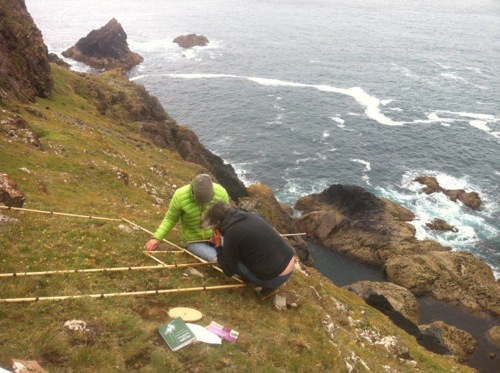
|
|
General wildlife and botanical surveys: With a wealth of species on the Lizard, information is key to understanding what we have, and what we need to do to help wildlife, particular the more unusual species in our care. If you have a particular expertise, and would like to take on monitoring of a certain taxa, please do get in touch. We always appreciate information that will help us make management decisions. If you are a university student wanting to undertake research on the Lizard, please do get in touch with the land manager for permission, and so we can help with relevant information for your project. More generally, if you have an interest in wildlife, we can occasionally match volunteers wanting to learn about specific wildlife and survey techniques, with opportunities offering training. To be kept informed of such opportunities contact rachel.holder@nationaltrust.org.uk or (01326) 291174
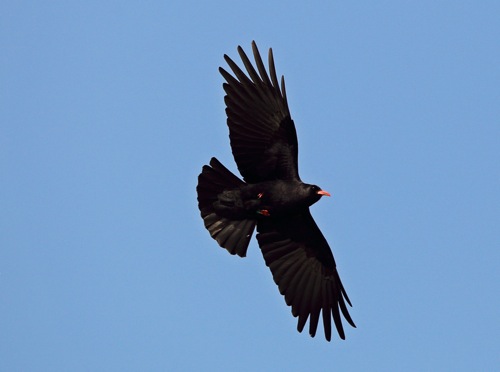 Choughs in Cornwall: Working closely with National Trust and Natural England, the RSPB works hard to improve the natural habitat for choughs in Cornwall. We also endeavour to protect the growing population of Cornish Choughs from disturbance (intentional and unintentional) by monitoring their nest sites. We are always keen to find new volunteers to help us protect nest sites across the Duchy, some of which are here on the Lizard. To learn more about the Cornwall Chough Project visit the Cornish Choughs website or contact claire.mucklow@rspb.org.uk . In the meantime, if you see Choughs please send your sightings to: cornishchoughs@rspb.org.uk. Click here for more information about the RSPB’s work in Cornwall.
Choughs in Cornwall: Working closely with National Trust and Natural England, the RSPB works hard to improve the natural habitat for choughs in Cornwall. We also endeavour to protect the growing population of Cornish Choughs from disturbance (intentional and unintentional) by monitoring their nest sites. We are always keen to find new volunteers to help us protect nest sites across the Duchy, some of which are here on the Lizard. To learn more about the Cornwall Chough Project visit the Cornish Choughs website or contact claire.mucklow@rspb.org.uk . In the meantime, if you see Choughs please send your sightings to: cornishchoughs@rspb.org.uk. Click here for more information about the RSPB’s work in Cornwall.
 Seals in Cornwall: The Cornwall Seal Group has volunteers across Cornwall recording seal sightings daily. If you would like to learn more about identifying seals and how to get involved in regular surveys please get in touch with Sue Sayer (sue@cornwallsealgroup.co.uk). Likewise, if you have seen a seal, Sue is always keen to receive sighting reports: the basic report details should cover: date/time, location and number of seals seen. Photographs are always useful but not essential. For more information on seals in Cornwall visit the Cornwall Seal Group website
Seals in Cornwall: The Cornwall Seal Group has volunteers across Cornwall recording seal sightings daily. If you would like to learn more about identifying seals and how to get involved in regular surveys please get in touch with Sue Sayer (sue@cornwallsealgroup.co.uk). Likewise, if you have seen a seal, Sue is always keen to receive sighting reports: the basic report details should cover: date/time, location and number of seals seen. Photographs are always useful but not essential. For more information on seals in Cornwall visit the Cornwall Seal Group website
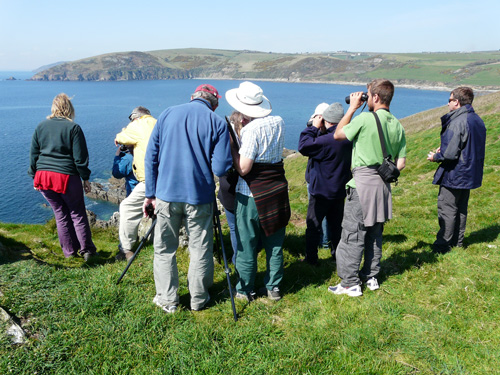
Marine Life: ‘Seaquest Southwest’ is a marine recording project run jointly by Cornwall and Devon Wildlife Trusts that collects sightings of all marine creatures from the public. Everyone who uses the coast and sea, for work or play, can help us record marine life. Your sightings will help us to learn more about where these creatures live, feed and breed, and help us to protect them. As well as ad hoc sightings, which can be submitted online via the ORKS website (Online wildlife Recording for Kernow & Scilly), volunteers can get involved and be trained to be part of ‘Seaquest Sundays’. ‘Seaquest Sundays’ are a monthly land-based survey held at various sites across Cornwall. There are two ‘Seaquest Sunday’ sites on the Lizard and many more elsewhere in Cornwall. You can either join in at an existing site or choose your own new site. We are constantly recruiting, training and supporting volunteers so that they are able to carry out the land based surveys and be part of this worthwhile project. To find out more please visit the Cornwall Wildlife Trust website.
Shoresearch (rocky shore surveys): Shoreseach is a citizen-science project being carried out on both sides of the English Channel that aims to collect vital data on rare species, non-native species and climate change indicator species in and around our Marine Protected Areas, as well as raising public interest and appreciation of our marine life. We have a user-friendly survey method and training is provided during the winter months – surveys are carried out between March and October. All are welcome to get involved; the only requirement is that you are keen to learn and are enthusiastic! Find out more on the Shoresearch page of our website, and to become a volunteer contact Matt on matt.slater@cornwallwildlifetrust.org.uk
Divers needed for Seasearch project: Seasearch is a national project for volunteer sports divers who have an interest in what they are seeing under water, who want to learn more and to help protect the marine environment. Cornwall Wildlife Trust is responsible for coordinating all Seasearch activities in the county. Go to our wesbite to find out how you can help as a volunteer.
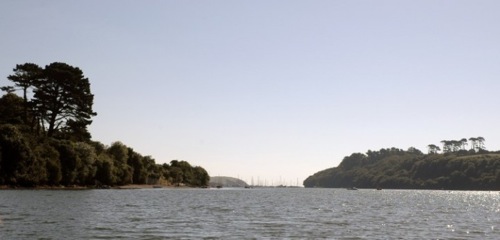 Voluntary Marine Conservation Areas (VMCA): If you live near a VMCA (Looe, Fowey, Helford, St Agnes or Polzeath) you can become involved as a volunteer. Volunteers can help in these areas with education work involving schools, events programmes and environmental monitoring programmes. The Helford VMCA has an established group, called the Helford Marine Conservation Group. For more information about the group and how to get involved, please visit our website or contact our coordinator Sue Scott on coordinator@helfordvmca.co.uk
Voluntary Marine Conservation Areas (VMCA): If you live near a VMCA (Looe, Fowey, Helford, St Agnes or Polzeath) you can become involved as a volunteer. Volunteers can help in these areas with education work involving schools, events programmes and environmental monitoring programmes. The Helford VMCA has an established group, called the Helford Marine Conservation Group. For more information about the group and how to get involved, please visit our website or contact our coordinator Sue Scott on coordinator@helfordvmca.co.uk
Other Wildlife: There are lots of other organisations carrying out survey work on the Lizard. For more details follow the links below:
Plantlife: http://www.plantlife.org.uk/things_to_do/wildflowers_count/
Butterfly Conservation: http://www.ukbutterflies.co.uk/sightings.php
UK Moths: http://ukmoths.org.uk/pages/moths-count/
LadybirdUK: http://www.ladybird-survey.org/
Buglife: https://www.buglife.org.uk/activities-for-you/wildlife-surveys
Marine Life: http://www.cornwallwildlifetrust.org.uk/livingseas/livingseas
Cornwall Bird Watching Preservation Society: http://www.cbwps.org.uk/cbwpsword/sightings/
BTO birdTrack: http://www.bto.org/volunteer-surveys/birdtrack/about
…and more at OPAL: National Citizen Science Surveys: http://www.opalexplorenature.org/surveys
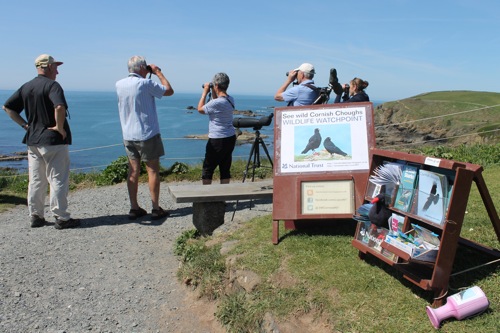 New to surveying
New to surveying
If you don’t know much about wildlife but you’d like to learn more and build on your wildlife ID skills, a good place to start is at the National Trust Wildlife Watchpoint, where they can offer you the opportunity to develop your skills while sharing your enthusiasm for wildlife with the public. We offer regular wildlife ID sessions and guided walks to help bring volunteers and visitors closer to nature. If you are interested in learning more about wildlife and helping on the Watchpoint please get in touch with: catherine.lee@nationaltrust.org.uk or (01326) 291174.

